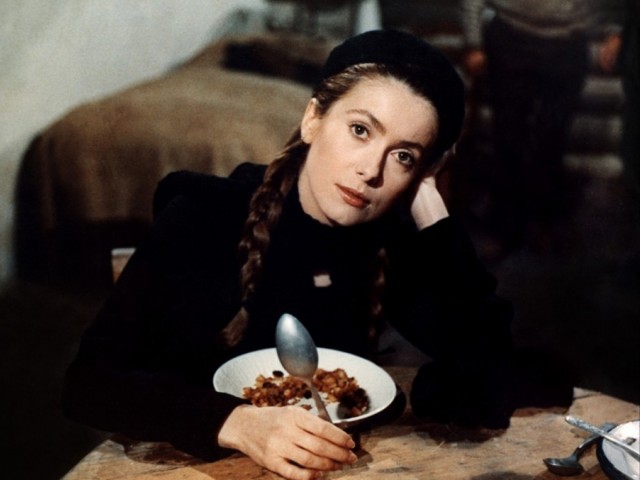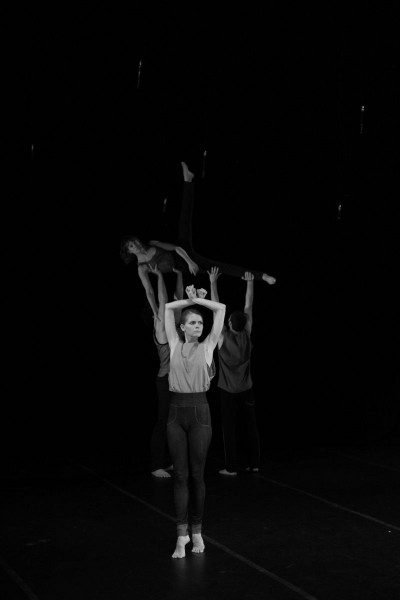
Netta Yerushalmy explores communication through movement and sound in debut evening-length piece (photo by Ayala Gazit)
NETTA YERUSHALMY: DEVOURING DEVOURING
La MaMa
Ellen Stewart Theatre
66 East Fourth St., second floor, between Bowery & Second Ave.
Through December 16, 7:30, $20
212-475-7710
www.lamama.org
www.nettay.com
Netta Yerushalmy’s Devouring Devouring was developed over the course of two years, as the choreographer and four dancers interacted primarily via video conferencing between New York and Tel Aviv before coming together for the physical performance. That communication is at the heart of the involving sixty-minute work, Yerushalmy’s first evening-length piece. For the first half of the performance, Joanna Kotze, Toni Melaas, Ofir Yudilevitch, and Stuart Singer acknowledge one another but don’t ever touch. They run, jump, and angle across the black stage, emerging and departing from behind a tall, narrow orange curtain in one corner. Twelve icicle bulbs dangle over the back, while six chandelier-type fixtures hang horizontally over the center. Wearing loose-fitting light gray tops and tight dark gray pants — except for when Singer appears twice in a lovely white Baroque gown designed by costumer Magdalena Jarkowiec — the dancers gesture with their hands, make direct eye contact with the audience, and perform repetitive movements. But slowly they begin engaging in physical contact, first just brushing by one another, then lightly touching hands, before breaking off into trios that have fun with conventions, including a memorable moment in which one dancer’s foot shoots out unexpectedly from between two other dancers’ bodies. Mark degli Antoni’s soundtrack also goes through significant changes, starting off with electronic noise, followed by a classic Woody Allen joke and a Baroque melody, along with patches of complete silence, the experiments in sound melding with the experiments in movement. Although all four dancers give strong performances, Kotze is extraordinary, whether standing on her tiptoes at the front of the stage for an extended period of time, gazing seriously at people in the crowd, or dramatically lifting one leg high up in the air while lying on the floor. Yerushalmy’s (Rooms Without a View; Hello, My Name Is Catherine) piece explores communication not only among the dancers but with the audience as well; if there is a narrative, it might actually be the audience’s need to discover one, which it will have trouble doing in this case. And despite many funny segments (in addition to Allen’s joke), the dancers never crack even the hint of a smile — at least, not until the performance is over and they get to enjoy a well-deserved round of applause.
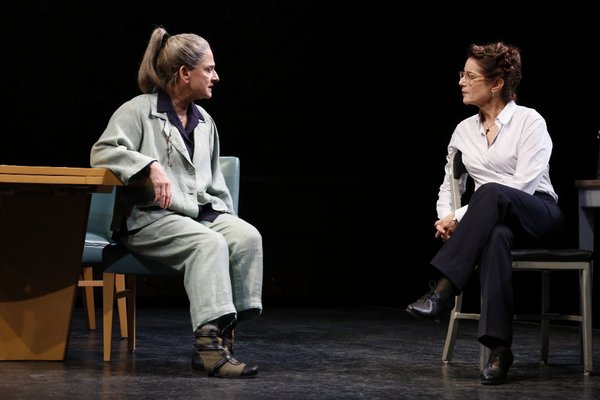
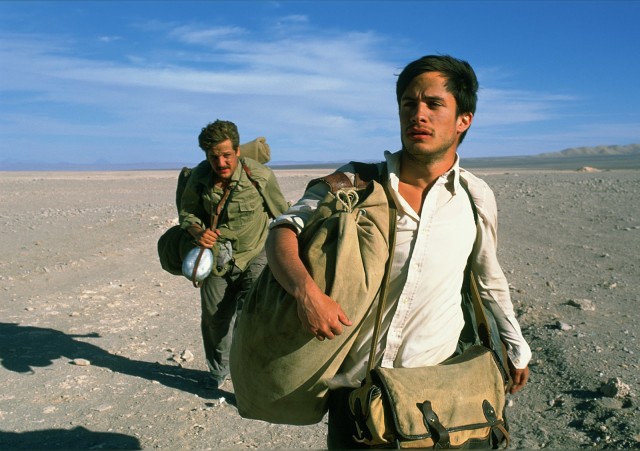
 In Walter Salles’s road movie The Motorcycle Diaries, Gael Garcia Bernal and Rodrigo De la Serna star as buddies Ernesto Guevara de la Serna and Alberto Granado, who hop aboard the Mighty One, an old, dilapidated Norton motorcycle, on a grand adventure across South America, on their way to work at a leper colony. While fun-loving Alberto is out for action, the more serious Ernesto wants to remain true to his love, Chichina (Mia Maestro). As they scam people for food, drink, mechanical help, and a place to sleep, they learn a lot more about life than they expected, especially Ernesto, who gets caught up in the plight of the poor, the sick, and the homeless, laying the groundwork for his revolutionary leadership in Cuba (where he is more well known as Che Guevara). The film, based on the writings of Ernesto and Alberto, is beautifully shot on location by Eric Gautier and excellently directed by Brazilian Salles, who previously gave us the wonderful Central Station and the heartbreaking Behind the Sun. Stick around for the credits, which begin with photos of Ernesto and Alberto from the actual trip. The Motorcycle Diaries is screening December 16 at 6:30 in a new 35mm print as part of the IFC Center series “Road Movies: Directed and Selected by Walter Salles,” in conjunction with the December 21 theatrical release of Salles’s adaptation of Jack Kerouac’s On the Road. The series also includes such films as Central Station, Edgar G. Ulmer’s Detour, and John Ford’s The Searchers.
In Walter Salles’s road movie The Motorcycle Diaries, Gael Garcia Bernal and Rodrigo De la Serna star as buddies Ernesto Guevara de la Serna and Alberto Granado, who hop aboard the Mighty One, an old, dilapidated Norton motorcycle, on a grand adventure across South America, on their way to work at a leper colony. While fun-loving Alberto is out for action, the more serious Ernesto wants to remain true to his love, Chichina (Mia Maestro). As they scam people for food, drink, mechanical help, and a place to sleep, they learn a lot more about life than they expected, especially Ernesto, who gets caught up in the plight of the poor, the sick, and the homeless, laying the groundwork for his revolutionary leadership in Cuba (where he is more well known as Che Guevara). The film, based on the writings of Ernesto and Alberto, is beautifully shot on location by Eric Gautier and excellently directed by Brazilian Salles, who previously gave us the wonderful Central Station and the heartbreaking Behind the Sun. Stick around for the credits, which begin with photos of Ernesto and Alberto from the actual trip. The Motorcycle Diaries is screening December 16 at 6:30 in a new 35mm print as part of the IFC Center series “Road Movies: Directed and Selected by Walter Salles,” in conjunction with the December 21 theatrical release of Salles’s adaptation of Jack Kerouac’s On the Road. The series also includes such films as Central Station, Edgar G. Ulmer’s Detour, and John Ford’s The Searchers.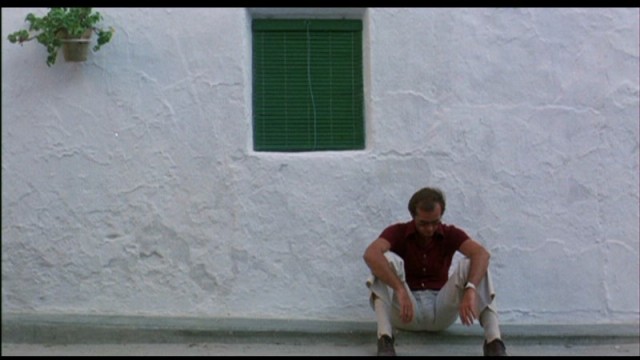
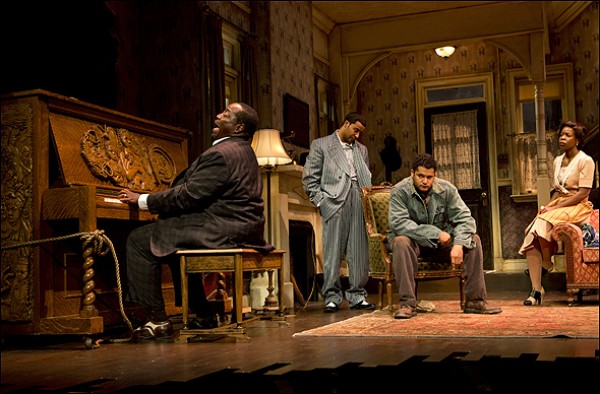
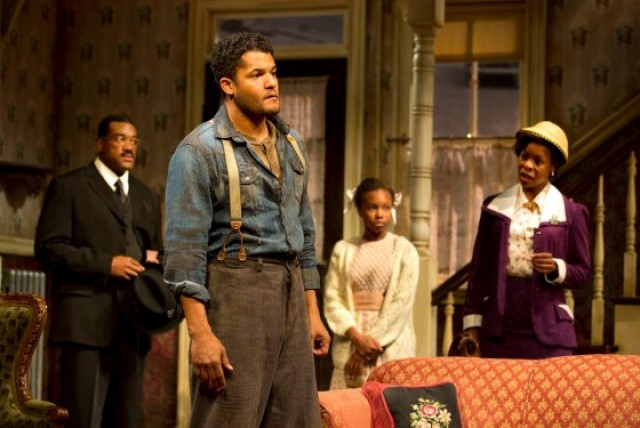
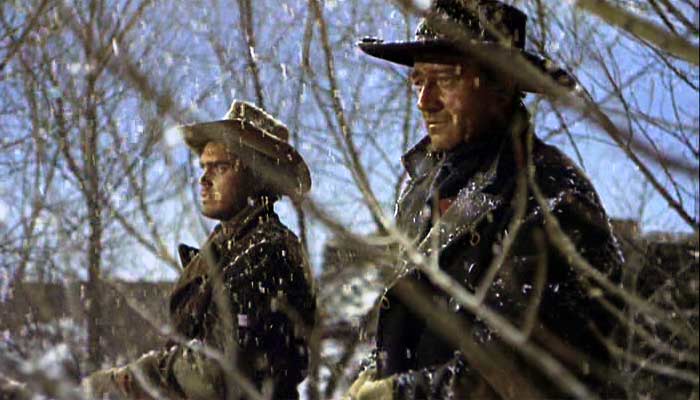
 That’ll be the day when someone tries to claim there’s a better Western than John Ford’s ethnocentric look at the dying of the Old West and the birth of the modern era. Essentially about a gunfighter’s attempt to find and kill his young niece, who has been kidnapped and, ostensibly, ruined by Indians, The Searchers is laden with iconic imagery, inside messages, and not-so-subtle metaphors. Hence, it is no accident that John Wayne’s son, Patrick, plays an ambitious yet inept officer named Greenhill. The elder Wayne stars as Ethan Edwards, a tough-as-nails Confederate veteran seeking revenge for the murder of his brother’s family; he’s also out to save Debbie (Natalie Wood) from the Comanches, led by a chief known as Scar (Henry Brandon), by ending her life, because in his world view, it’s better to be dead than red. Joining him on his trek is Debbie’s adopted brother, Martin Pawley (Jeffrey Hunter), who wants to save her from Edwards. The magnificent film balances its serious center with a large dose of humor, particularly in the relationships between Ethan and Martin and Ethan with his Indian companion, Look (Beulah Archuletta). And keep your eye on that blanket in front of the house. The Searchers is screening December 15 and 17 as part of the IFC Center series “Road Movies: Directed and Selected by Walter Salles,” in conjunction with the December 21 theatrical release of Salles’s adaptation of Jack Kerouac’s On the Road. The series also includes such films as Salles’s Central Station and The Motorcycle Diaries, Edgar G. Ulmer’s Detour, and Michelangelo Antonioni’s The Passenger.
That’ll be the day when someone tries to claim there’s a better Western than John Ford’s ethnocentric look at the dying of the Old West and the birth of the modern era. Essentially about a gunfighter’s attempt to find and kill his young niece, who has been kidnapped and, ostensibly, ruined by Indians, The Searchers is laden with iconic imagery, inside messages, and not-so-subtle metaphors. Hence, it is no accident that John Wayne’s son, Patrick, plays an ambitious yet inept officer named Greenhill. The elder Wayne stars as Ethan Edwards, a tough-as-nails Confederate veteran seeking revenge for the murder of his brother’s family; he’s also out to save Debbie (Natalie Wood) from the Comanches, led by a chief known as Scar (Henry Brandon), by ending her life, because in his world view, it’s better to be dead than red. Joining him on his trek is Debbie’s adopted brother, Martin Pawley (Jeffrey Hunter), who wants to save her from Edwards. The magnificent film balances its serious center with a large dose of humor, particularly in the relationships between Ethan and Martin and Ethan with his Indian companion, Look (Beulah Archuletta). And keep your eye on that blanket in front of the house. The Searchers is screening December 15 and 17 as part of the IFC Center series “Road Movies: Directed and Selected by Walter Salles,” in conjunction with the December 21 theatrical release of Salles’s adaptation of Jack Kerouac’s On the Road. The series also includes such films as Salles’s Central Station and The Motorcycle Diaries, Edgar G. Ulmer’s Detour, and Michelangelo Antonioni’s The Passenger.